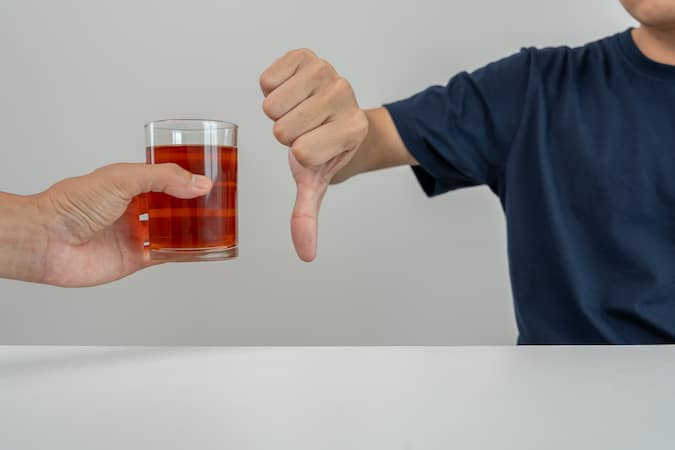
Tips to Reduce Alcohol Consumption for Better Health

Alcohol consumption is a common part of social life for many, but overindulging can have serious health impacts. Cutting back or eliminating alcohol can lead to improved mental and physical well-being. In this article, we’ll cover practical, manageable ways to reduce your alcohol intake and prioritize your health.
Key Takeaways:
- Learn how to identify triggers that lead to drinking.
- Explore simple alternatives to alcoholic beverages.
- Discover techniques to handle social situations without alcohol.
- Find out where to get ongoing support and resources.
Why Reducing Alcohol Consumption Matters

Alcohol can have significant effects on both your body and mind, including risks to your liver, heart, and mental health. Cutting back has immediate and long-term benefits, such as better sleep, clearer thinking, and reduced disease risk. Learn more about healthy lifestyle strategies at SelfGood .
Start with Awareness
The first step to reducing alcohol consumption is understanding your drinking patterns. Reflect on the following:
- How often are you drinking?
- What triggers your alcohol consumption? (e.g., stress, social events, boredom)
- How do you feel after drinking?
Tips to Build Awareness:
- Track Your Intake:Use an app or journal to monitor how much you drink weekly.
- Identify Triggers:Notice if you drink more during specific emotions or settings.
- Set Clear Goals:Decide if you want to cut back or stop altogether.
Replace Alcohol with Alternatives
Finding substitutes for alcoholic beverages can help ease the transition and satisfy the social or habitual aspect of drinking.
Try These Alternatives:
- Mocktails:Enjoy non-alcoholic versions of your favorite cocktails.
- Infused Water:Experiment with fruit, herbs, or cucumber for refreshing flavors.
- Herbal Teas:Relax with chamomile, peppermint, or other teas.
- Sparkling Water:Add a splash of juice for a fun, fizzy treat.
Explore more strategies for healthy living on our blog .
Develop New Coping Mechanisms
Many people turn to alcohol as a coping tool for stress or emotional relief. Developing healthier strategies can make it easier to reduce alcohol use.
Healthy Coping Techniques:
- Exercise:Regular physical activity boosts mood and reduces stress.
- Mindfulness Practices:Meditation or deep breathing can calm your mind.
- Hobbies:Engage in activities like painting, reading, or gardening.
- Support Networks:Surround yourself with people who encourage your goals.
Prepare for Social Situations
Social settings often present challenges when cutting back on alcohol. Preparing in advance can help you stay committed to your goals.
Tips for Navigating Social Events:
- Have a Response Ready:Practice politely declining offers to drink.
- Bring Your Own Beverage:Show up with a non-alcoholic option you enjoy.
- Focus on Connection:Engage in meaningful conversations or activities.
- Set Limits:Decide beforehand how much (if any) alcohol you will drink.
Seek Support and Resources
Reducing alcohol consumption is easier with the right support system and resources. Whether you need guidance or accountability, help is available.
Resources to Consider:
- Counseling or Therapy:Work with a professional to explore underlying causes.
- Support Groups:Join programs like Alcoholics Anonymous (AA).
- Apps:Use tools like Reframe or Sober Grid for daily encouragement.
Explore health insurance options for therapy and other services on our health insurance plans page.
Conclusion: Take the First Step Today
Reducing alcohol consumption is a powerful way to improve your health and quality of life. By building awareness, exploring alternatives, developing new coping strategies, and seeking support, you can achieve your goals. Start small, stay consistent, and celebrate your progress along the way.




